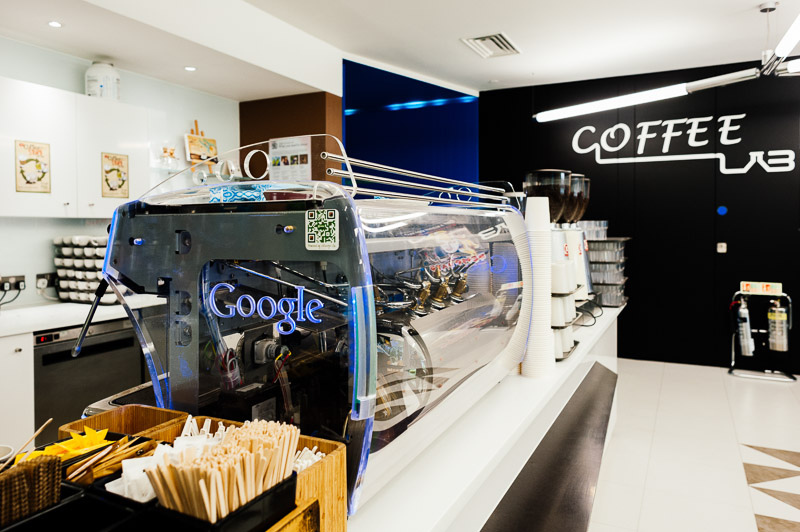The coffee break has been a staple of the workday since the early days of modern industry. Office spaces soon became ornamented with automatic coffee machines and afternoon coffee orders became a daily ritual.
Yet, these breaks were often limited, to ensure that workers weren’t spending too much time away for their desks.
Today the tables have turned. More traditional companies now realize that social concepts, like the communal workspace, actually boost employee productivity and coffee culture is a major part of this. Grabbing a latte is no longer just something workers do on their break, but rather a vital part of a productive workday.
Offices around the world are now jumping on this trend, rapidly moving away from placing emphasis on hours worked and focusing more on socializing in order to promote communication and collaboration.
Have a Cup of Corporate Coffee
International office design experts, Steelcase, recently published an article titled “Real Work”, where they explored companies that are currently integrating alternative spaces into their official workspaces. They highlighted the fact that being productive is no longer limited to the desk, but can also take place while grabbing a coffee with colleagues.
It is important to remember that these office cafés are not like the ones around the corner from your house, but actually considered to be another type of office. The creation of the workplace coffee shop is a result of blending “first place” and “third places” to create a “second place” that gives “employees access to environments that offer employees the relaxed amenities of home”.
The “Real Work” article made reference to several examples of alternative workspaces, including Google’s latest endeavor the Coffee Lab. The author paid a visit to Google’s latest addition to the London campus, describing it as a “neutral territory, perfect for meeting outside vendors or partners”.
Creating added value through First, Second and Third Spaces
Betahaus, which first opened in Berlin in 2009, and has since expanded to Barcelona, and Sofia, is a prime example of a contemporary collective office that has created added value through various qualities derived from alternative spaces.
By combining the “best aspects of a Vienna-style coffee house, the library, home office and university campus”, Betahaus offers their members a workspace that encourages both social interaction and productivity through architectural diversity and alternative workspace.
In fact, when you enter Betahaus Berlin, your first impression is their café. The multifaceted space that leads to the upper floors, where the official “coworking” is happening, is always buzzing with people talking, working on laptops and enjoying a freshly cooked meal. One gets the impression that just as much work is being done over a cup of coffee as it is over a computer in the quiet meeting rooms.
As the workplace changes, things that once seemed counter-intuitive, like working in a noisy coffee shop, are now being reconsidered in the professional landscape. Now more than ever we realize the importance of employee wellbeing as well as the benefit of developing alternative workspaces.
Amanda Gray




0 Comments